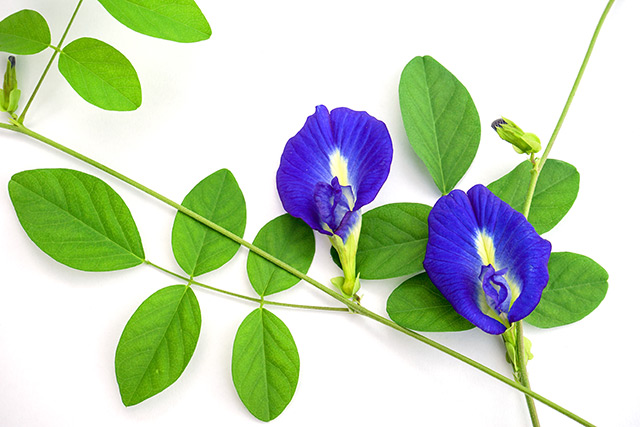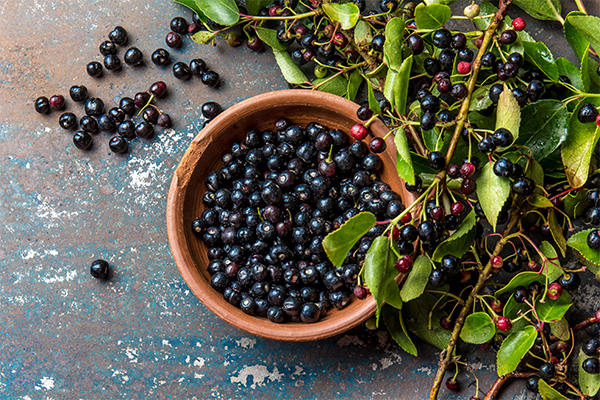Avoid the sugar slump after meals: Blue pea extract could keep your blood sugar levels stable
07/24/2018 / By Michelle Simmons

Keep your sugar levels at bay after meals by consuming blue pea extracts, according to a study published in the journal BMC Complementary and Alternative Medicine. Researchers at Chulalongkorn University in Thailand looked at the effects of blue pea (Clitoria ternatea L.) flower extracts on postprandial plasma glycemia response and antioxidant activity.
For the study, the research team recruited 15 healthy men aged between 22 and 40 years old with a body mass index in the range of 18.5 to 22.9 kilograms per square meter (kg/m2). The participants were randomly divided into five groups. Each group was assigned to drink one of the five beverages prepared for the study: 50 grams (g) of sugar in 400 milliliters (mL) of water; 1 g of blue pea flower extract in 400 mL of water; 2 g of blue pea flower extract in 400 mL of water; 50 g sugar and 1 g blue pea flower extract in 400 mL of water; and 50 g sugar and 2 g blue pea flower extract in 400 mL of water. Researchers also measured incremental postprandial plasma glucose, insulin, uric acid, antioxidant capacities, and lipid peroxidation.
Eating foods and drinking beverages with high sugar content induces postprandial hyperglycemia, which may lead to overstimulation of insulin, causing hyperinsulinemia. In the study, participants who consumed sugar with one and two grams of blue pea flower extracts experienced a suppression in the postprandial plasma glucose and insulin levels. In addition, their plasma antioxidant capacity, oxygen radical absorbance capacity (ORAC), and Trolox equivalent antioxidant capacity (TEAC) increased, while malondialdehyde (MDA) levels decreased.
Moreover, the consumption of blue pea flower extract inhibited the reductions in ORAC and TEAC and the increase in plasma MDA caused by sugar. However, the intake of blue pea flower extract alone did not cause any effect on glucose and insulin levels. This suggested that drinking blue pea flower does not produce hypoglycemia in the fasting state because its antihyperglycemic effect is not involved in the insulin-secreting activity.
Based on the findings of the study, the researchers concluded that blue pea flower extract improved postprandial glucose, insulin, and antioxidant activity when consumed with sugar in healthy men.
Tips on managing blood sugar levels
Blood sugar levels can be affected by what you eat. Foods such as non-starchy vegetables, leafy greens, whole fruit, whole grains, legumes, healthy fats, and lean protein help regulate blood sugar. In addition, the way you eat also affects the regulation of blood sugar levels. (Related: Foods That Help In Lowering Your Blood Sugar Level.)
Here are some tips on eating to prevent or manage diabetes:
- Eat food every three to six hours – Eat breakfast within an hour or two after waking up. After that, eat a snack or meal every three to six hours. The body takes about four to six hours to digest a meal. Eating in this manner will help the body keep the blood sugar stable.
- Have a balanced meal – For a balanced meal, half of your plate should be composed of non-starchy vegetables; the other half should be divided into two with protein and whole-food carbs, such as brown rice, quinoa, beans, legumes, or ancient grains like amaranth, millet, or farro. Compared to processed carbs like white rice, bread, and pasta, these complex carbohydrates contain more fiber and nutrients that help regulate blood sugar levels.
- Eat bigger meals earlier during the day – Eating more by the end of the day may increase the risk of obesity and diabetes because the body may need to secrete more insulin to control blood sugar, unlike eating earlier in the day.
- Spread out carbs – Limit consumption of carbohydrate-rich foods like pasta, rice, and sugar, or spreading these out throughout the day to prevent blood sugar spikes.
In addition, high blood sugar levels can be managed by having a healthy lifestyle, such as being more active, losing weight, managing stress, and quitting smoking.
Read more news stories and studies on maintaining healthy blood sugar levels by going to Sweeteners.news.
Sources include:
Submit a correction >>
Tagged Under:
antioxidant, blood sugar, blood sugar levels, blue pea, blue pea flower, blue pea flower extract, Clitoria ternatea, food as medicine, food cures, glucose, glycemia, insulin, natural cures, prevent diabetes, sucrose, sugar, sugar levels
This article may contain statements that reflect the opinion of the author
RECENT NEWS & ARTICLES
BloodSugar.News is a fact-based public education website published by Blood Sugar News Features, LLC.
All content copyright © 2018 by Blood Sugar News Features, LLC.
Contact Us with Tips or Corrections
All trademarks, registered trademarks and servicemarks mentioned on this site are the property of their respective owners.





















